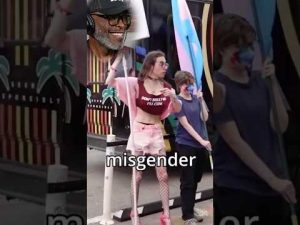Ladies and gentlemen, there is a new showdown brewing in the ever-evolving landscape of media and politics. This time, the stage is set on the brightly colored, autoplaying realm of Netflix. The tech mogul Elon Musk, known for his offbeat tweets and electrifying ideas, has turned his attention to the streaming giant, calling out what he sees as the moral abyss into which Netflix has plunged. The issue? The portrayal of sensitive content in children’s programming, which some argue crosses a significant line.
Critics claim that the streaming service is not just entertaining kids but indoctrinating them with radical notions. This perspective sees Netflix’s autoplay feature as a convenient babysitter for parents tackling the mundane tasks of adult life, while their little ones are allegedly subjected to content beyond their understanding. To some, this isn’t just poor taste; it’s an affront that borders on exploitation. But should Congress get a seat in Netflix’s control room? Let’s just say that’s up for debate.
Enter the Congressman, a man with a voice reaching far and wide, who suggests this debate might need to take a detour to Washington. His remarks resonated with many who believe that the audacity of certain shows demands accountability. The streaming landscape might not fall under the usual broadcast regulations, yet the question arises—should these content creators be answering tough questions under the Capitol’s spotlight? The conversation about the line between free speech and harmful content becomes a tightrope act without a safety net.
This call for oversight has stirred echoes of the cultural crusades led by figures like Charlie Kirk, known for firing up audiences with the notion of a cultural battle. The Congressman borrows a page from this playbook, suggesting that challenging the media giants is another chapter in the ongoing quest for cultural preservation. It’s about preventing what some perceive as grooming disguised as entertainment. It’s about ensuring young viewers aren’t receptors of ideology they’re not prepared to question.
In the cartoon crossfire, the implications aren’t just about what’s on the screen. It’s about who says what’s allowed, who draws the line, and who gets a say in what’s suitable for young, impressionable audiences. As lines continue to blur in the digital age, the question remains: Is Netflix a harmless provider of shows, or is it, as some critics suggest, the unwitting provocateur of a cultural clash? The debate continues, with no easy answers in sight, only a call to remain vigilant.







